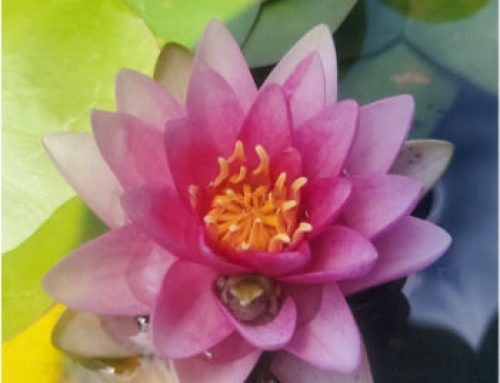
The change in weather also means a few changes for your pond. Cold weather and falling leaves can affect the water quality and overall health of your feature’s ecosystem. However, the BeeTeam has your back! Here are 5 simple tips to prepare your pond for fall.
1. Pond Net – Adding a net to your pond or water feature before major leaf fall is the most simple and effective way to manage and minimize leaf debris in your pond. Although it may not be the aesthetic you want for pond viewing enjoyment, once all the leaves have fallen you can simply remove the net.
2. Cut back dying foliage – Trimming back dead foliage is essential especially for ponds with a heavy amount of aquatic plants. Aquatic plants are fantastic for the overall health of your ecosystem however, dead foliage will add excessive organic debris that will decompose in the water if they are not removed.
3. Ensure healthy fish – Before water temperatures drastically drop you want to be sure your fish are in good condition before they begin their hibernation. A well- balanced diet helps keep your fish happy and healthy. Once the water temperatures drop below 60 degrees, your fish digestion and metabolism will slow down. Once this happens you want to begin feeding your fish cold water fish food which is formulated to provide the proper nourishment for your fish during these low temperature seasons. Once water temperatures fall below 50 degrees, stop feeding your fish.
4. Add cold water beneficial bacteria – A cold water beneficial bacteria is designed to work in temperatures below 50 degrees and will help keep your water clean during the cold seasons. Its proper regular use will help maintain water quality and help your pond digest and extra organic debris that accumulates in the fall.
5. Pond de-icer – Although you likely will not need to use this until the winter, a pond de-icer will be essential for your pond if you have fish. These de-icers are designed to keep a hole in the ice if temperatures fall below freezing. The hole in the ice proved a space that allow any toxic gasses that accumulate from fish waste to escape the water. If the pond completely freezes over and the gasses are not able to escape it can make your fish sick or even kill them. Ideally you do not need to run the de-icer throughout the entire fall/winter. We typically suggest placing the de-icer in your pond and only plugging it in when temperatures fall below freezing. You can unplug the de-icer once temperatures go back up.



